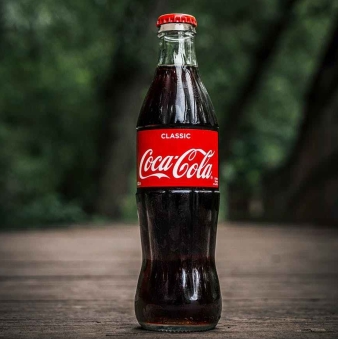 Marine plastic is malediction now a days causing many health and environmental hazards difficult and v. expensive to recycle especially for poor nation countries. Appreciations to a revolutionary new process made possible by Coca-Cola, this set-back may become a thing of the past. The company – in partnership with Ioniqa Technologies, Indorama Ventures and Mares Circulares (Circular Seas) – has already made 300 prototype bottles from 26% recycled marine plastic – retrieved from the Mediterranean Sea and beaches – which was formerly considered impracticable, low-quality marine waste plastic. The unrecyclable plastic was successfully upcycled into high-quality plastic by using this innovative new technology! Coca-Cola states this could be the future of packaging.
Marine plastic is malediction now a days causing many health and environmental hazards difficult and v. expensive to recycle especially for poor nation countries. Appreciations to a revolutionary new process made possible by Coca-Cola, this set-back may become a thing of the past. The company – in partnership with Ioniqa Technologies, Indorama Ventures and Mares Circulares (Circular Seas) – has already made 300 prototype bottles from 26% recycled marine plastic – retrieved from the Mediterranean Sea and beaches – which was formerly considered impracticable, low-quality marine waste plastic. The unrecyclable plastic was successfully upcycled into high-quality plastic by using this innovative new technology! Coca-Cola states this could be the future of packaging.
A Greenpeace report from 2018 showed how Coca-Cola was found to be the world’s largest corporate plastic polluter. The report detailed a survey of 239 clean-ups in 42 countries across six continents, in which volunteers collected more than 180,000 pieces of plastic. Nestle, Coca-Cola and PepsiCo communally accounted for 14% of the branded items recovered during the clean-ups.
The marine plastic bottle has been developed to show the transformational potential of revolutionary ‘enhanced recycling’ technologies, which can recycle previously used plastics of any quality back to the high-quality needed for food or drinks packaging.

Photo by Artem Beliaikin on Pexels.com
At the present moment, the company has committed to removing all preventable or firm to recycle plastic from its collection through light-weighting and the removal of secondary packaging made from plastics. This move eliminates the use of over 11,000 tons of plastic per year. The master stroke to this recent action was when Coca-Cola European Partners (CCEP) announced it will end the use of shrink-wrapped plastics across all can multi-packs it sells in Great Britain.
A number of recycling technologies use pioneering processes which break down the components of plastic and strip out contamination in lower-grade recyclables so they can be reassembled as good as new. This means that lower-grade plastics that were habitually predestined for incineration or landfill can now be given a new purposeful life. It also means more materials are available to make recycled content, reducing the quantity of virgin PET required from fossil fuels, and resulting in a lower plastic foot print and low carbon footprint.
From 2020 Coca-Cola’s next interim goal is functioning towards 100% recycled or renewable materials in all of its plastic bottles, which will avoid the use of more 200,000 tons of virgin plastic every year. If for some reason a renewable or recycled alternative does not exist, the company will publicly support deposit return schemes anywhere across Western Europe.



